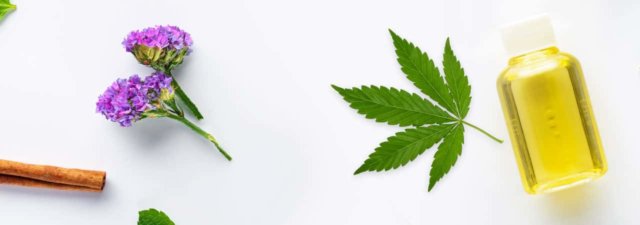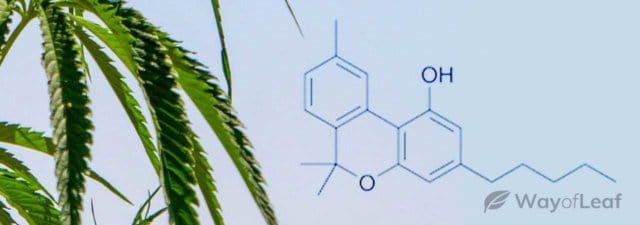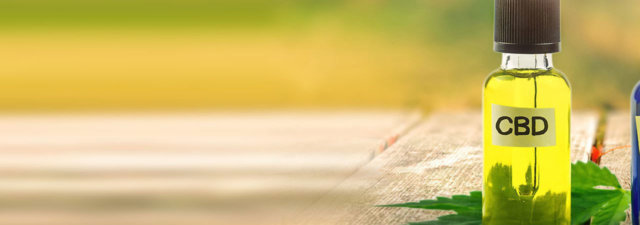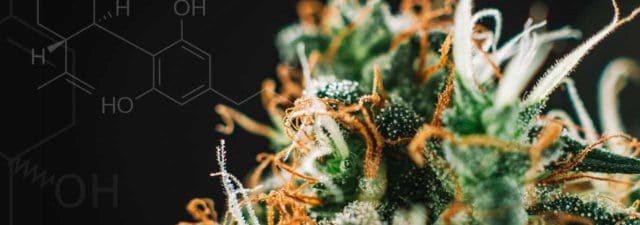CBD sales are escalating to the point where they are expected to reach approximately $20 billion globally by 2024. It is one of many interesting CBD statistics:
- There are almost 900 CBD brands in the American market.
- An estimated 40% of Americans have expressed an interest in using cannabidiol.
- Up to 75% of CBD brand founders or general managers are female.
- 90% of hemp-derived CBD consumers in the United States believe weed has medical benefits.
Here is a quick look at just how quickly CBD sales have grown in the United States:
Year | CBD Sales |
|---|---|
2014 | $108.1m |
2015 | $172.9m |
2016 | $262.2m |
2017 | $358.4m |
2018 | $512.7m |
2019 | $813.2m |
2020 | $1153m |
2021 | $1546m |
2022 | $1812m |
Potential CBD Benefits
The list of purported benefits varies from a reduction in seizures in people living with epilepsy to relief from anxiety and stress.
Benefit | Explanation |
|---|---|
Pain and vomiting | May help reduce symptoms related to pain, vomiting, and nausea |
Anti-inflammatory | Impacts endocannabinoid receptor activity, thus reducing inflammation and treating pain related to conditions such as arthritis, multiple sclerosis, and fibromyalgia |
Anxiety & depression | Potentially helps you to relax, feel calmer, and may also boost mood |
Reduces acne | CBD could minimize sebum production, the primary cause of acne |
Neuroprotective properties | Possibly reduces muscle spasticity and seizures |
Cardiovascular health | CBD is linked with the ability to lower high blood pressure and reduce oxidative stress |
However, CBD does not work for everyone. Therefore, we advise you to steer clear of any website, organization, or CBD seller that claims the cannabinoid is a cure-all. Research into CBD is ongoing, and while it has uncovered plenty of exciting things, scientists are, at present, unable to conclude the exact efficacy of cannabidiol.
If you have tried CBD and it did not have the effect you desired, there are several reasons. In this guide, we provide explanations for six of the most common.
1 – Low-Quality CBD Products
Due to its relatively new prevalence, the CBD market is still very much like the wild, wild West; heavily unregulated. CBD is not FDA approved, meaning it is not subject to many of the strict rules that other health products and supplements are.
Sometimes, dishonest companies will try to make a quick buck by selling CBD or hemp oil made from poor quality ingredients or with very little CBD content within the products at all. Ideally, look for CBD products that are made with organic hemp and are free from pesticides, insecticides, chemical fertilizers, and other carcinogens.

The way you can make sure a company’s products are free from all those nasty ingredients is by reviewing their third-party lab reports (if they have them). Reports conducted by an unaffiliated lab will give you an honest breakdown of what is featured in a CBD product.
Unfortunately, not every brand decides to quality control and test its products. In 2017, researchers examined the quality of online available CBD extracts. The study published in JAMA found that a mere 31% of products contained the CBD listed on the label within a margin of 10%. That means an entire one-quarter of the products tested had less CBD than its company claimed.
Another concerning factor was that 21% of products also had THC, which poses a massive problem if you are required to take a drug test.
As time went on, we were hoping the CBD marketplace was becoming more transparent, but in 2019, an NBC 6 Miami, Florida team bought 35 CBD products from seven different brands and had them sampled. The results? 20 of the products contained less than half of the cannabidiol content claimed! Even worse, some of the products contained zero CBD. One representative example was a bottle of gummies expressing 15mg of CBD on the label, which results showed only actually contained 2.2mg.

Therefore, if CBD is doing nothing for you, it might be a case of the product not containing much cannabidiol to begin with! Begin your CBD search by looking for reputable brands like Premium Jane, Green Roads, Elixinol, and Provacan if you are a UK customer.
Incidentally, Green Roads was one of the brands tested by NBC 6. It was one of the few companies that made the grade. The company’s founder, Laura Baldwin Fuentes, said she spends over $1 million each year to perform three levels of testing. Remember, CBD companies are not legally required to test their products. Only buy from brands that have third-party lab reports backing up their claims.
2 – Dosage & Potency
One thing we DO know about CBD is that it affects everyone differently. Factors such as your age, weight, gender, lifestyle, general health, and the condition you aim to treat all play a role in how it affects you. As a consequence, your best bet is to begin with a low dose to see how CBD affects you. If you are not satisfied with the results, up the dosage accordingly until you reach the minimum recommended dose.
It is entirely possible that 10mg of CBD per day does nothing, but 20mg a day has an effect. As a general rule of thumb, begin with 1-6mg per 10 pounds of body weight, depending on your pain level. For example, you will take far more if you have severe pain when compared to mild discomfort.
Here is a quick table outlining rough estimates based on pain level and how much you weigh.
| Weight | Mild Pain | Medium Pain | Severe Pain |
|---|---|---|---|
| 0-49 pounds | 1-6mg | 3-9mg | 6-12mg |
| 50-99 pounds | 5-20mg | 12-49mg | 30-60mg |
| 100-149 pounds | 10-30mg | 21-74mg | 50-90mg |
| 150-200 pounds | 15-40mg | 31-99mg | 75-120mg |
| 201-250 pounds | 20-50mg | 41-124mg | 105-150mg |
| 251-300 pounds | 25-60mg | 51-149mg | 125-180mg |
As you can see, the range is vast. Begin at the lower end and work your way up.
Understanding the potency of the CBD product in question is imperative if you aim to determine your daily dosage. For instance, a bottle that contains 30ml of liquid and 1,200mg of CBD contains 40mg of CBD per ml. Most CBD tincture bottles contain a 1ml or 2ml dropper. Read the label carefully to see how many drops the dropper holds.
It is all too easy to miscalculate your dosage and use too little or too much CBD.
3 – You Have Inadvertently Developed a Tolerance
Those who consume cannabis often can take a tolerance break (T-break) when it feels as if marijuana is no longer offering them the same impacts as prior. After a short period of abstinence from the plant, they return and once again get to reap cannabis’s rewards. Like with cannabis, frequent CBD consumers may also need to take a tolerance break if they find cannabidiol is no longer assisting. It IS completely feasible that one could develop a tolerance to CBD, though they would probably have to consume a significant amount to reach that point.
A December 2018 study presented by Shimrit Uliel-Sibony expressed a trial in which 92 patients have ‘treatment-resistant’ epilepsy. They all were placed on a CBD treatment protocol, where cannabidiol was administered in especially high doses. The researchers found almost one-third of the patients developed a tolerance to the CBD.
Like any substance, it is possible to develop a tolerance to CBD, though it’s uncommon.
The reports of this study certainly are not encouraging if one is consuming long-term high doses of CBD for epilepsy, but there is a sliver of hope about their findings. The dosage administered and the time frame of administration were both far above the amounts most individuals would practice. Also, it took an average of 7 months for each study participant to reach tolerance. Additionally, the mean dosage was 12.6mg per kg per day.
Just to put these numbers in perspective, a person weighing 154 pounds would need to consume around 882mg of CBD daily to build up such a tolerance, as represented in this study.
There is a short list of why CBD won’t work for you, but developing a tolerance is probably the least likely. Nonetheless, if you are, like many average consumers taking between 30mg-120mg of CBD per day, and you notice a tolerance building, consider refraining from cannabidiol use for one to two weeks and monitor closely how you feel.
4 – Genetics
Even if CBD is immensely popular, there is no actual evidence that it is guaranteed to work for every single individual. Sometimes, a person’s genetic makeup may be preventing them from benefiting from certain cannabinoids, hence why they may not have as positive a reaction as others.
In November 2016, a study conducted by Smith et al. and published in PLoS One examined rare genetic variants in the core endocannabinoid system (ECS) genes. Their research expressed that up to 20% of humans have a genetic mutation that enables us to generate a level of endocannabinoids that is above average. People who are presented with this genetic mutation are often shown to be less anxious, but they also do not receive as much relief when consuming cannabidiol products.
5 – Physical & Psychological Health
Also, there are biological factors at play. Initial research suggests that women are more sensitive to the cannabinoids in weed and hemp than men. As a result, they are more likely to experience pain relief than their male counterparts. It is also worth noting that men are larger than women on average. Since a person’s size dictates the effect of CBD, it stands to reason that men need more CBD to treat conditions such as chronic pain.
Interestingly, the menstrual cycle plays a role in how cannabinoids impact women. Studies going back to the early 1980s show THC works closely with the hormone, estrogen. As a result, marijuana is at its most potent when a woman’s estrogen levels are at their highest. It is less clear whether CBD has the same impact.

If you don’t believe that cannabinoids impact each person differently, consider alcohol consumption and tolerance. You may feel okay after four glasses of wine, while someone else may lose their balance after consuming the same amount. Once again, this is due to, the ECS. Factors such as diet, lifestyle, stress, and genetics determine the impact of CBD.
If you want CBD to work more efficiently, take a look at your fatty acid intake. A study by Kim, Li, and Watkins, published in Nutrition in June 2011, stated that a diet high in Omega-6 polyunsaturated fatty acids would result in increased ECS activation. Increased Omega-3 intake helps modulate the activation of target receptors in the ECS.
Feel Good Already? CBD May Not Help
Oddly enough, if you are in excellent physical and psychological shape, CBD may not provide much assistance. From what we know about the cannabinoid, it works best in individuals with endocannabinoid ‘gaps.’ Do you take aspirin when you don’t have a headache or ibuprofen when you don’t have inflammation?
If you have a condition such as fibromyalgia, for example, you are in dire need of cannabinoids. As such, using CBD should help alleviate at least some of the pain. When you use CBD medicinally, it results in numerous chemical reactions within the body that help restore a state of balance or homeostasis. If your body is already in this state, it stands to reason that CBD won’t give you much of a boost.
It is the same scenario when it comes to mental health. Individuals with depression, PTSD, anxiety, or a similar issue possess a chemical imbalance in the brain. When you use CBD, it potentially restores the chemical balance and improves how you feel. Once again, would you use anti-depressants if you already felt good and did NOT suffer from depression?
6 – You Are Not Using a Full-Spectrum Product
There are plenty of cannabidiol sellers offering CBD isolate. While there is nothing inherently wrong with these products, some research suggests they are not as effective as full-spectrum products. This type of item contains dozens of cannabinoids aside from CBD, including CBG, CBC, and CBN; not to mention scores of terpenes.
Research shows that cannabinoids, terpenes, and flavonoids work better together in a process known as the entourage effect. You can even combine CBD with THC if you don’t mind feeling a little stoned (CBD helps counteract the psychoactive effects of THC somewhat) and live in a legal state.
7 – You’re Not Being Patient! (Unrealistic Expectations)
Once again, the lack of regulation in the CBD industry is a problem here. Too many users believe the hype and think cannabidiol will provide a ‘cure’ for their medical complaint. It is best if you alter your expectations. If you have suffered from crippling pain for years, don’t be disappointed if CBD doesn’t eliminate it completely. It is far more likely that the cannabinoid will reduce the severity of the pain to a point where life is less miserable.
If you expect a 90-100% reduction in pain and ‘only’ get a 50% reduction, you will ‘feel’ cheated. In reality, you are much better off than you were before!
Don’t expect immediate results when using CBD; patience and consistency are key.
Also, don’t expect a situation where you use CBD and feel ‘better’ within five minutes! Many of the possible effects, such as anti-inflammatory properties, take weeks of daily use to notice. Remember, the CBD interacts with the cannabinoid receptors of your immune system and ECS to trigger a response from the cells.
‘Balance’ in the body is not something that happens overnight. Be patient and wait until you finish a full CBD oil bottle, or use a CBD product daily for a month before judging its efficacy.
A Chart Highlighting and Summarizing Each Pitfall
| Possible Reason | Explanation |
|---|---|
| Low Quality CBD Products |
|
| Dosage & Potency |
|
| Tolerance |
|
| Physical & Psychological health |
|
| Full-Spectrum Products |
|
| Patience |
|
Final Thoughts on Whether CBD Oil Will Work for Everyone
If you have used CBD and are disappointed in the perceived lack of effects, look through this article to see if any of the points apply to you. It might be something as simple as not using a high-quality product, or else you don’t use enough CBD each day. Alternatively, you may be unlucky, and your genetic makeup means cannabinoids don’t impact you in a similar way to others.
On the plus side, it may not work because you are in excellent health. That’s hardly the worst thing in the world.
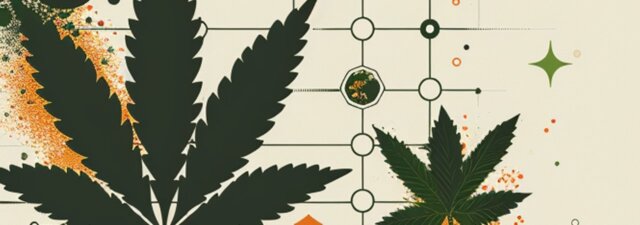
![HHC vs. Delta 8 [Explained]](https://marijuanabreak.com/wp-content/uploads/2023/01/wol-banner-hhc-vs-delta-8-640x225.jpg)
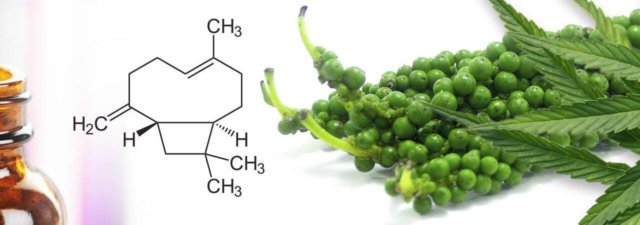
![What Is CBDV? [Effects, Strains, and More]](https://marijuanabreak.com/wp-content/uploads/2019/09/mj_what_is_cbdv_1920-min-640x225.jpg)
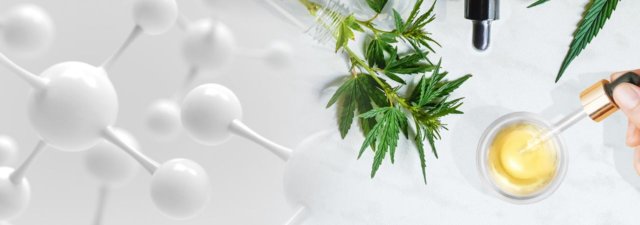
![Is Cannabis a Fruit or Vegetable? [Here’s the Answer]](https://marijuanabreak.com/wp-content/uploads/2019/01/is-cannabis-a-vegetable-or-fruit-640x225.jpg)
![What Are the Tiny Red Hairs on Weed? [Explained]](https://marijuanabreak.com/wp-content/uploads/2018/12/wol_what-are-the-tiny-red-hairs-on-weed_1920x450-640x225.jpg)
![What Is THCA? [Exploring the “Other” THC…]](https://marijuanabreak.com/wp-content/uploads/2018/05/mj_thca-640x225.jpg)
